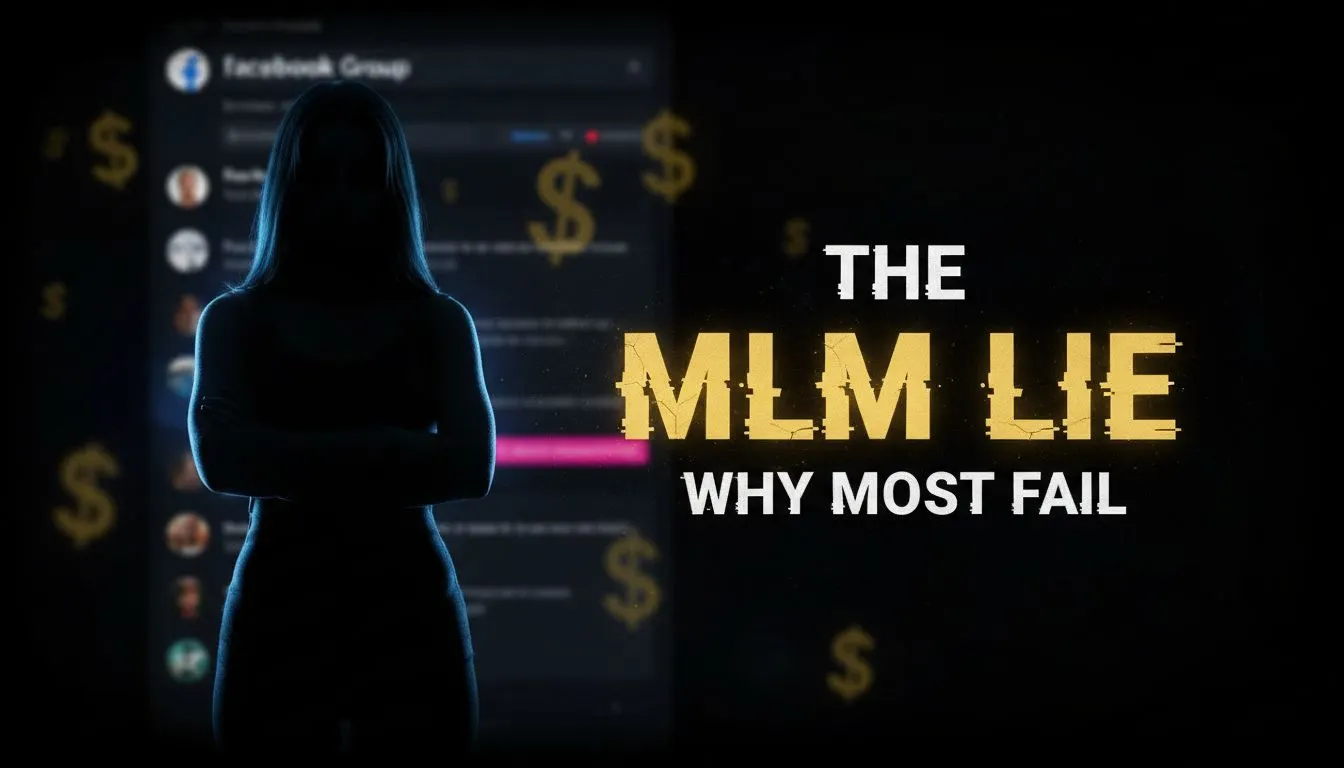Is Network Marketing Legal?
Network marketing, also known as multi-level marketing (MLM), is a business model in which a company recruits distributors to sell its products directly to the public. These distributors then recruit others to sell the products, and so on. This might not seem all too bad, but with its bad reputation, you might ask yourself if network marketing is legal or is it illegal.
An important note: I'm not an attorney and I'm not providing legal advice. If you need professional advice, this is the wrong place. The information below is being provided for informational purposes. Most of this information is relevant to network marketers in the United States. If you live outside the U.S., make sure that you follow your local laws.

What is Network Marketing?
Network marketing, or direct selling, is a business model in which independent contractors sell products or services through relationships with other independent contractors. Network marketing is often compared to the multi-level marketing model, in which salespeople are not only required to sell products or services to their own customers, but also recruit new sales representatives into their company. However, network marketing does not require recruiting agents or multi-level marketing structures.
There are many legal issues that can come up when it comes to network marketing.
For example, the Federal Trade Commission (FTC) has strict rules about how companies must disclose their compensation plans and how salespeople are required to operate. Many state laws also have similar requirements. It is important to check with your state’s department of commerce before starting a network marketing business so you know what regulations may apply and what steps you need to take to comply with them.
Although there are some legal issues that can come up when it comes to network marketing, the vast majority of businesses using this model are legally compliant.
If you’re considering starting a network marketing business, be sure to do your research so you know what steps need to be taken in
What are the Benefits of Network Marketing?
Network marketing is a business model in which participants create and sell products and services to other participants. The benefits of network marketing include the ability to build a large customer base, access to new markets, and the potential for residual income. Legality can vary depending on the country and jurisdiction, but generally speaking, network marketing is legal in most countries.
There are several factors that can influence the legality of network marketing.
1) First, the type of product or service offered may be considered a commodity or contraband under some national laws.
2) Second, whether payments are made directly to participants or through third-party distributors may affect how legally permissible network marketing is.
2) Last, regulation of recruiting methods may restrict how many people can participate in a given network.
What are the Risks of Network Marketing?
There are a few risks associated with network marketing if you follow your local regulations, but the biggest one is that you're investing your time and money into something that may not work. Network marketing can be very rewarding if it's done correctly, but it can also be extremely challenging.
If you're not qualified to run a business or if you don't have the financial resources to do so, then your chances of success are slim.
Additionally, network marketing is illegal in some states and countries, so be sure to research any regulations in your area before getting started.
Frequently Asked Questions
Is network marketing legal in the United States?
Generally speaking, network marketing is legal in the United States. This means that companies can use a network marketing plan as part of their business model, so long as they abide by all state and federal laws.
One thing to keep in mind is that some states do have more stringent regulations than others when it comes to network marketing. For example, some states require a company to register with the government before using a network marketing plan, while others only require a company to disclose its relationship with distributors.
For example, California has the Endless Chain statute.
Oregon has their pyramid statute ORS 646.608 (1)(a).
It's important to check with your state's department of business affairs or attorney general for more information on the specific regulations in your area.
Is network marketing legal in the UK?
There is no one-size-fits-all answer to this question, as the legality of network marketing in the UK will vary depending on the specific scheme involved. However, generally speaking, most schemes that involve selling products or services through a network of distributors are legal.
Some factors that may affect the legality of a network marketing scheme include whether the company selling the products or services has been registered with the relevant government agency, whether there are any rules governing how participants can be recruited and how commission payments are made.
It is important to be aware of any potential legal risks before starting a network marketing business, and to seek advice from an attorney if necessary. You can learn more at the Advertising Standards Authority (ASA) website.
Is network marketing legal in the China?
The Chinese government does not recognize network marketing as a legitimate business model. The Chinese government has banned all forms of pyramid schemes and pyramid-like structures.
If you want to open a business in China, you must register your business with the government. There are specific laws that apply to your business. The laws are quite strict and can be quite difficult to navigate.
In order to avoid getting into trouble, you need to be very careful about the type of business you choose. The government is quite particular about who they allow to operate in the country.
When it comes to network marketing, the Chinese government does not allow it. This means that you cannot legally offer products or services through any network marketing structure.
You may have heard of companies like Amway doing business in China. While some network marketing business try to grow their company in China, they have to comply with the regulations. That means, pyramid-style selling cannot be done over there legally.
You can learn more about the Anti-Chuanxiao regulation here.
Is network marketing legal in India?
At the time of writing this post, Network Marketing is not illegal in India. But there are many people who try to sell products that they don’t have a license to sell. If you’re going to use network marketing as a way to make money, then you need to be sure that you have all the legal rights to do so. India has many laws in place to protect consumers from being tricked into buying products that aren’t what they claim to be.
The Consumer Protection Act was designed to handle settlements of consumer disputes, especially for products that don’t live up to their promises. It’s also against the law to sell products that you don’t have a license to sell. If you want to use network marketing to make money, you need to be sure that you have the rights to do so.
How do you know if your MLM company is legal in the United States?
There are a number of factors to consider when determining whether network marketing is legal.
First, the nature of the product must be lawful. This means that the product cannot violate federal or state law.
For example, an MLM company that sells nutritional supplements likely falls within the bounds of legality since they are not classified as firearms or controlled substances by law.
Second, the company must comply with all applicable regulations including those governing advertising and sales practices.
Failure to comply with these regulations could lead to legal action being taken against the company.
Third, it is important to ensure that any earnings generated through network marketing are properly distributed to participants according to their earnings levels and participation in the program.
If there are significant discrepancies between earnings distributions and participant eligibility criteria, this could lead to legal action being taken against the company.
When in doubt, few your most current, local regulations.
I recommend reviewing the FTC website and reviewing this FTC document.
The vast majority of enforcement activity in the U.S. revolves around state governments. The Federal Trade Commission (FTC), Securities and Exchange Commission (SEC) for publicly traded companies, and United States Postal Service (USPS) play leading roles at the federal level.
Conclusion
Network marketing can be a great way to make money and build your own business. However, it is important to understand the risks involved before you get started.









